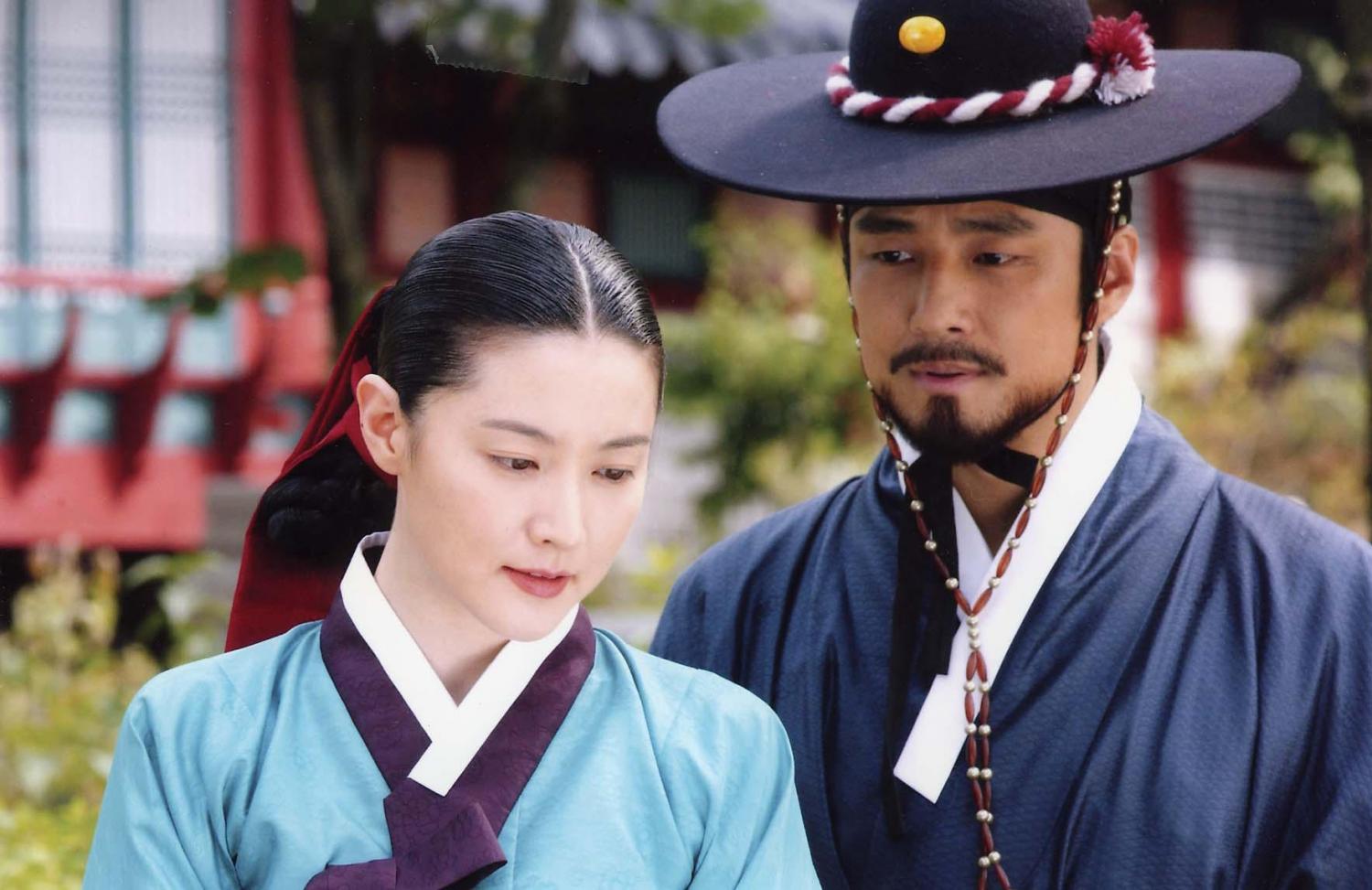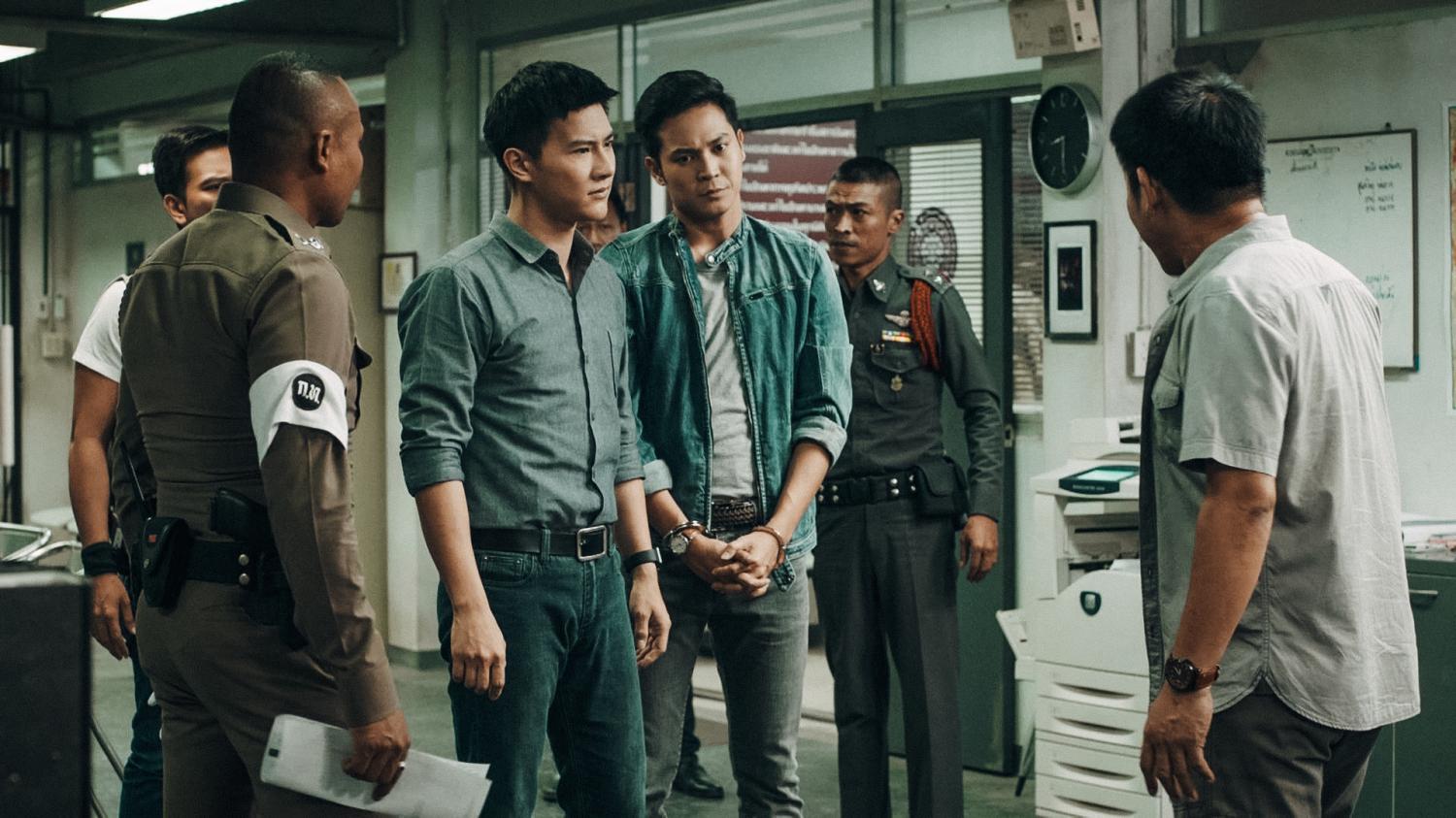From Parasite's historic triumph at the Oscars earlier this month to the hype generated by the romantic drama Crash Landing On You which just wrapped last week, it's undeniable the influence South Korean content is having on our big and small screens.
From tear-jerking romances to brutal thrillers, and everything in between, it seems Korean cinema and TV have what it takes to capture the international imagination. This has had a profound impact on other industries in the country, through fan tourism, fashion, beauty, food and even cosmetic surgery trends.
This success hasn't happened overnight. "Hallyu", or Korean Wave, began to spread through Asia as early as 2000. One of the first Korean series to be broadcast in Thailand was Autumn In My Heart, which is considered a pioneer in Korean melodrama. It became a big hit in several countries. Around the same period, Thai cinemagoers embraced My Sassy Girl with open arms. The quirky romcom was such a success that it has inspired many international remakes and adaptations.
Two decades on, the South Korean presence has solidified on our screens. The startling breadth of hits over the years -- consider the likes of Dae Jang Geum, Oldboy and Train To Busan -- have served to make sure Korea TV and cinema are never far from our consciousness. This in turn has made filmmakers and showrunners more confident and ambitious. We're now seeing unlikely genre hybrids, such as Netflix's Kingdom, which sees a Joseon dynasty prince battling zombies. Its second season is due for release on March 13.
Jessada Salathong, lecturer of the Faculty of Communication Arts and assistant to the president for international affairs at Chulalongkorn University, says that many factors have played a part in pulling off this global takeover. For one, the Korean government chose to take the creative economy very seriously and was determined to make it a success.
The country's film commission helps promote Korean films and support their productions through funding and education. It offers incentives and cash rebates to encourage foreign productions to film in Korea. There have been talks about the possibility of establishing a screen quota to limit monopolisation by Hollywood blockbusters and promote local, independent titles in cinemas. And of course, the Busan International Film Festival has helped put the Korean film industry on the world map.
"The world has observed South Korea's progress from agriculture to producing cars and TVs, to their move into the hospitality and tourism sectors, and beyond. But as we can see during the current coronavirus epidemic, tourism can be a pretty fragile industry. The creative content industry -- including film, TV shows, games, manga and anime -- on the other hand, remains strong," said Jessada. "South Korea has a clear road map for the direction they want to go in."

Apicha Honghirunruang, managing director of True CJ Creations. Photo © True CJ Creations
In 2014, at the Asian Games in Incheon, actress Lee Young-ae, lead star of Dae Jang Geum, was one of the torch bearers who lit the cauldron during the opening ceremony.
"This reflects how much the government values their audiovisual content and the people within the industry. They're perceived as heroes for making the world know about Korea," Jessada said.
An important factor that contributes to the success is the collaborative effort shown by everyone from the public and private sectors to the people -- the audiences -- themselves.
As evidence for this, Jessada cites the speech by Miky Lee, vice-chairwoman of CJ Group, at the Academy Awards when Parasite won Best Picture. Towards the end of her speech, she thanked Korean audiences for their honest criticism. This says a lot about audience participation in the country, he says. "Public support doesn't come through box office revenue only, but also through feedback and comments, which Lee takes as constructive criticism. To do that, audiences not only watch a film or series, they also actively reflect on what they like and dislike. Creators are willing to listen and adapt. This is huge. It's a good creative process which shows that their society is open to criticism and development. And this can't be done from top down alone.

Dae Jang Geum.
"In the end, all this collaborative effort has ended up making Korea a powerhouse of soft power," Jessada concluded.
At its core, it takes entertaining, quality content to draw the crowd's wholehearted support. Some of the attraction, of course, comes from having good-looking, charismatic leads (like the swoon-worthy hero in Crash Landing On You, who will cross even the 38th parallel for the woman he loves). However, the stories also have to be refreshing, ideally with certain elements that hit a universal chord -- think the social inequality presented in Parasite -- to be truly successful.
Aside from producing original hits, another model that has helped propel and prolong the life of the Korean Wave is through local remakes and adaptations from existing Korean properties. In Thailand, there have been many series and films of this nature, albeit to varying degrees of success.
South Korean entertainment and media company CJ ENM has partnered with Thai companies to make localised versions of their content. The company joined Major Group in establishing CJ Major Entertainment to adapt Korean films into Thai versions. Examples include Suddenly Twenty, a remake from the 2014 comedy-drama Miss Granny, starring Davika Hoorne. More recently, we had Classic Again (released earlier this month), which sees a new, young cast taking on the 2003 romantic melodrama The Classic.
When it comes to series, CJ ENM has formed True CJ Creations with True Corp. So far, True CJ has released three remade series: Oh My Ghost, Tunnel and Voice.
"To select a series for remake, we don't just pick the hottest or most famous series. We look instead for a script that can touch Thai people the most -- ones that we can really localise, tell the story in our own way, and give it another flavour," said Apicha Honghirunruang, managing director of True CJ Creations.

Oldboy.
Adapting these series comes with a significant amount of pressure.
"We have to admit that the quality of Korean productions are very high, and the casts and crews are very talented. Their industry has seen great development for a long time. They also have big budgets. Now that we're adapting their works, if we can't be on par with, or even better than the originals, it would be hard for Thai audiences to accept the remakes," he said.
The key to adapting a certain story well involves finding the core message and ideology of the original, Apicha explained. Then, it's about telling the story in the context of Thai culture and setting, and recognising how these differences might shape the characters and story.
CJ ENM gave the Thai team full freedom in the adaptation process.
"They even insisted that we localise the series and not just copy them," he said. "We take the core message. The rest, from character design and everything else, is up to us."
These localised versions are made with Thai audiences who've never seen the originals in mind. However, the producers hope they also reach global viewers. True CJ's existing three series are all available on Netflix alongside their Korean originals.
"We want Thai content to travel and reach overseas audiences. South Korea and its culture has found success in reaching people all over the world through entertainment. We hope Thai content can follow in this path," said Apicha.

A scene from the Thai remake of Tunnel. Photo © True CJ Creations
True CJ currently has a further three series in the pipeline: Another Miss Oh, Let's Eat and Let's Fight Ghost. With Let's Eat revolving around food, Apicha intends to use it as a showcase for Thai cuisine.
Jessada sees globalisation as an opportunity for exchange, where Thai companies can remake international content while also exporting their own successful originals for overseas adaptation. But in order for remakes to work well with audiences, they have to have the right blend of original and updated material, even to the point where audiences "almost forget" the original is set in another country because the story has been adapted so well to its new cultural context.
"We may look to South Korea with admiration and even idolisation. However, we shouldn't stop at that. We have to see what we can do next to improve our own creative economy as they have done. We have good resources, content and culture in our hands. But we have to figure out how there could be better audience participation and also a clear policy of support from the state," Jessada concluded.

Crash Landing On You tells a tale of star-crossed lovers from either side of the 38th Parallel. Photo © Netflix

